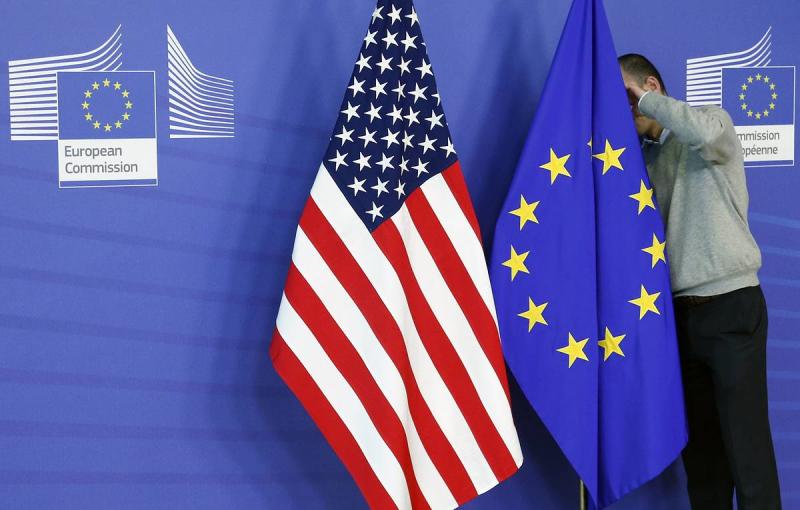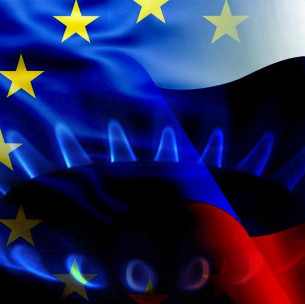
© REUTERS/Francois Lenoir/TASS
A meeting of the US–EC Trade & Technology Council (ТТС) was held in College Park, Maryland on December 5. This was the parties’ second attempt to agree on altering the law to reduce inflation in the United States (Inflation Reduction Act, IRA), adopted in August this year. The document threatening the European economy and actually splitting the "collective West" will come into force in January next year, making Brussels call for a coordinated response to the United States. But first things first.
It should be immediately noted that that the US and the EU have found themselves a footstep away from the most serious economic conflict in history. Even ahead of the current TTC meeting, the European Union issued an ultimatum demanding that the United States reconsider America’s "green" policy, as it fears European economy would be derailed. However, the possibility of avoiding a transatlantic trade war has not been fully eliminated at the College Park talks.
According to US Secretary of State Anthony Blinken, the parties have managed to make progress in resolving trade disputes, particularly subsidies for electric car manufacturing. No specific agreement has been reached, and the parties only arranged to intensify negotiations on EU concerns about large subsidies for American companies as stipulated by the Clean Energy and Security Act.
"We underline the TTC’s role in achieving this and in supporting a successful and mutually supportive green transition with strong, secure, and diverse supply chains that benefit businesses, workers, and consumers on both sides of the Atlantic," the Associated Press (AP) agency said in a statement yesterday.
Just a reminder: IRA provides for the allocation of $369 billion to $430 billion from the US budget in new and expanded tax benefits to aid the US clean energy industry and buyers of electric vehicles, batteries and power equipment manufactured in North America. EU leaders are understandably concerned that subsidies will become a huge obstacle for European companies. For instance, French President Emmanuel Macron raised this issue directly with American President Joe Biden during his state visit to Washington last week. The latter, in turn, said he was ready to address the matter, including legislative "failures".
We emphasize, however, that President Biden did not pledge IRA abolishment to Macron, to which the Frenchman responded by saying that America’s protectionist plans to subsidize American companies "threaten to split the West." According to Macron, "this (IRA – ed. note) may solve American problems, but will aggravate those of Europe."
The French president’s stance is shared by head of the European Commission (EC) Ursula von der Leyen, who urged the people of Europe to "stand up for the principles of free trade" IRA crushed, as she believes. Brussels says this law is ample proof of Washington's protectionist policy solely aimed at its own vested interest, primarily in producing electric vehicles. Although the EU has not given a clear assessment of the IRA since August, the chief EU executive is raising voice against it, and Brussels’ stance does not seem to be holding out a hope of a pacific settlement of disputes with the United States.
In particular, Ursula von der Leyen said that from now on, Europe would play by its own rules, defiant of the United States. In fact, Brussels intends to give Washington a Roland for an Oliver, putting its own interests above all the declarations of transatlantic unity and need to strengthen international solidarity against authoritarian regimes. "This law threatens transatlantic unity. It encourages European companies to move to the USA. It disrupts critical logistic chains in the common market. Therefore, we need to rewrite our own rules in order to become more attractive to investors as compared to our aggressive competitors," the EC head said last Monday.
Ursula von der Leyen was echoed by Chairman of the European Parliament's Trade Commission Bernd Lange in even stronger language. He said the EU would repine the United States to the World Trade Organization (WTO) in quest for a settlement between the two sides after the negotiations. "No negotiations will change IRA’s protectionist basis. Therefore, the European Union should file a lawsuit with the WTO as soon as possible," Lange said on the eve of the TTC meeting in College Park. In his opinion, IRA conceptually contradicts the organization’s principles. President of the European Council Charles Michel is on the same page. All of them refer to this American law as "disruptive."
One must wonder why did the Europeans take up arms against the US desire to curb inflation (a purely intra-American matter, as it would seem) so fiercely and encourage "green" economy (an actually good thing for all of mankind)? The Inflation Reduction Act’s name itself is a mere disguise for a comprehensive set of measures hardly related to inflation. In real practice, IRA is primarily aimed to make the US industry more eco-friendly. Reduced inflation will only be a side effect of its transition to an energy-efficient track. But in doing so, the IRA authors kill two birds with one stone, as the Americans put it.
To understand the program scale of IRA, let’s recall that the period from 2010 to 2021 saw global investment in eco-friendly economy exceed $1 trillion, and today Washington wants to allocate almost half of it for its own needs alone. When signing the law, President Biden called it the "most aggressive" act to combat climate change in his country’s entire history. This "aggressiveness" is something that has exasperated the European Union fearing that conditions US law provides to environmentally inclined companies will entail a mass outflow of equivalent European companies overseas.
"Competition is a good thing, but everyone must respect a level playing field," von der Leyen said (perhaps mindful of the 2022 FIFA World Cup, which the US national team left last Saturday after losing 1:3 to the Netherlands).
European politicians see IRA as a deadly peril primarily for their automotive industry, the energy sector and the entire labor market. Analysts predict that the "flight" of such companies to America will make tens of thousands of EU people lose their jobs, not to mention the member states’ narrowing tax base. Therefore, one can safely assume that the chasm between Europe and the United States is getting wider and deeper…









